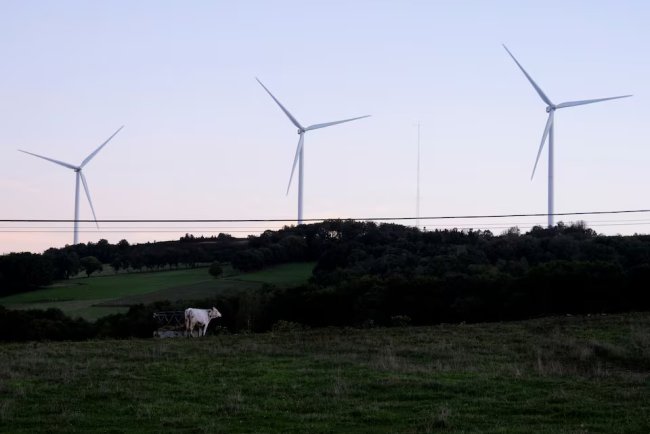IATA Selects Hong Kong to Host 2025 World Sustainability Symposium
The International Air Transport Association (IATA) will hold its 2025 World Sustainability Symposium in Hong Kong, hosted by Cathay Pacific, to advance discussions on aviation’s path to net zero, sustainable aviation fuel, investment, and new technologies.

The International Air Transport Association (IATA) has announced that the 2025 edition of its World Sustainability Symposium (WSS) will take place in Hong Kong, making it the first time that the annual event has been held in Asia. Taking place from 21-22 October 2025 and hosted by Cathay Pacific, the symposium will convene leadership from across the aviation sector including policymakers, financiers, energy specialists and technology developers with the aim of analysing how the global aviation sector can reach its ambitious net zero CO2 target by 2050.
The World Sustainability Symposium has emerged as a key annual event for the aviation sector - a vehicle to review progress, share experiences and tackle challenges in achieving a more sustainable future. The 2025 symposium is especially important given that it will be held at a crucial moment in international climate and aviation policy. It will occur shortly after the 42nd Assembly of the International Civil Aviation Organization (ICAO), where governments and industry will have discussed mechanisms to advance support for sustainable aviation fuel and enhance the Carbon Offsetting and Reduction Scheme for International Aviation (CORSIA). It will also fall just ahead of COP30, which is expected to be heavily focused on bringing climate pledges to fruition. The symposium will serve as an effective link between these two events, with participants engaged in discussions about how to transform commitments into actions.
The advancement of Sustainable Aviation Fuel (SAF) will be a key theme at the Hong Kong event. SAF is broadly recognised as the most immediate and scalable option to reduce aviation emissions in the decades ahead, yet it is produced in quantities far lower than necessary for the industry to meet its climate targets. Cathay Pacific will actively pursue the opportunity to lead SAF devleopment, and position Hong Kong as a potential SAF production and distribution centre in Asia. This ambition has much of relevance with major regional initiatives, as Asia-Pacific governments and industry leaders are beginning to consider SAF development into their decarbonisation strategies and plans.
The symposium will also discuss the important issue of financing the massive amounts of capital required to facilitate this transition to net zero emissions in aviation and the low-carbon operating models. Investment for the transition is substantial – industry experts think that moving to low-carbon operations, including fuel development, infrastructure development, and more sustainable technologies could cost up to US$4.7 trillion globally. These amounts will require deep collaboration amongst airlines, governments, multilateral institutions, and private finance providers to mobilise. Hong Kong is viewed as an ideal forum for these discussions, and as one of Asia's primary and leading financial centres - Hong Kong offers a distinct opportunity to bring together the global investment community and the aviation industry.
Another important subject will be the incorporation of new technologies. Start-ups and established companies alike are developing solutions such as hydrogen propulsion, carbon capture, advanced efficiency tools, and more. However, the successful scaling of these technologies will require regulatory clarity, investor confidence, and cross-sectoral collaboration. By bringing energy, finance, and technology players together with airlines, the WSS helps to challenge each to look at these topics holistically, showing that decarbonising aviation is part of the bigger global energy transition.
The list of speakers for the event is an indication of its breadth. Ronald Lam, Chief Executive Officer of Cathay Pacific, will kick things off with a welcome. Mable Chan, Hong Kong’s Secretary for Transport and Logistics, will give the keynote address on Hong Kong’s role in driving green aviation. This will be followed by a leadership dialogue between Patrick Healy of Cathay Pacific and Willie Walsh, Director General of IATA, discussing how airlines can drive climate momentum despite the barriers that still exist. Other speakers will represent entities such as the Hong Kong Green Finance Association, HSBC, logistics provider Kuehne+Nagel, risk management firm WTW, and tech company Infinium, all of which will highlight the broad collaboration across sectors that aviation’s green transition will need to become a reality.
The symposium will highlight the role of policy support in achieving industry objectives. Airlines are still committed to net zero by 2050, but gains have been slowed because of policymaking delays, limitations in aircraft and engine production, and delays in investment in sustainable fuel supply chains. Hence part of the purpose of this symposium will be an opportunity for governments, manufacturers, and energy producers to align more closely with the industry's commitments to a low- carbon future. Identified as necessary is an increased governmental role to eliminate barriers to sustainable aviation fuel (SAF), create market mechanisms to incentivize clean energy investment, and ensure resultant regulations that promote innovation rather than limit it.
For Hong Kong, it is an opportunity to leverage its positioning as a regional leader in green aviation and green finance. With its positioning as a regional hub, Hong Kong has the financial markets and aviation infrastructure to act as a nexus for the development and distribution of sustainable aviation solutions. Cathay Pacific has led the charge by investing in SAF and partnering with international suppliers to demonstrate its commitment to be a leader in the arena. Hosting the WSS will firmly place Hong Kong on the map to engage in the global dialogue around aviation sustainability challenges.
The decision to host the World Sustainability Symposium in Asia for the first time reflects the increasing importance of the region in shaping the future of the industry. In the coming decades, Asia-Pacific will account for a significant proportion of aviation growth, with growing passenger demand and increasing airline fleets. It will be essential to make sure that this growth is sustainable if the industry wants to meet its net zero commitments. By bringing together stakeholders in Hong Kong, IATA will emphasize operations in Asia not only as a demand-driver, but also as a centre of innovation, finance, and policy leadership in aviation sustainability.
Marie Owens Thomsen, the Senior Vice President of Sustainability at IATA, has noted that decarbonising aviation cannot be done in isolation. Decarbonising aviation must be approached as part of the global energy transition where multiple sectors - including energy, agriculture, finance and technology - cooperate. In her view, the WSS is a potential catalyst for what she refers to as radical collaboration, breaking down the norms and conventional business models and bringing parties together to find common solutions to a shared problem. This thinking provides a reminder that no entity will achieve aviation's climate targets by themselves; collaboration is necessary.
It is anticipated that the Symposium will create new momentum not just for SAF and new technologies but also for the wider policy frameworks that support aviation's climate aspirations. It should provide a space for stakeholders to connect, have open dialogues, share experience and think creatively about potential financial solutions, all of which build the trust and partnerships needed to achieve net-zero by 2050.
To sum up, the 2025 World Sustainability Symposium in Hong Kong marks a giant leap for the aviation industry's climate agenda. It emphasizes the urgency and complexity of achieving net zero emissions while continuing to manage a globally connected sector. With a focus on sustainable fuel, investment, technology, and cross-sector collaboration, the symposium can influence the future of aviation's energy transition in the coming critical years. IATA's choice of Hong Kong as the host city underscores an appreciation for the region's significance in global aviation and moving toward a sustainable future.
What's Your Reaction?

















